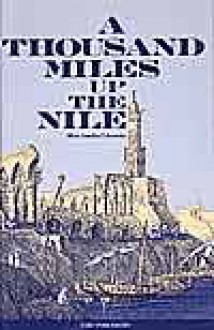When I began my commitment to give honest, no conflict of interest reviews for the work of new, self-published authors I wasn’t expecting much. I’m a tough reviewer and I wasn’t prepared to lower my standards and though I try to temper my criticism with suggestions on how the work might be improved, I sometimes find that’s a challenge.
Considering that I’m reviewing my peers, most who have had as much or more success than myself, you might ask what good are my suggestions? Probably not very good, but I’ve found well considered negative reviews had more to offer, more to learn from, than the “loved it, couldn’t put it down” non-specific five star rating (yes, I’ve actually had a few of those).
What I wasn’t prepared for were some of the best books I’ve ever read.
Two books so far have been astounding - the voice, the diction, the wit, the wisdom, the originality, the conception of plot, the being swept away by the prose. I was enthralled.
The books are War in a Beautiful Country by Patricia Ryan and Not Lost For Lookin’ by Lexi Boeger. They were both offered free on Smashwords and as far as I can tell have had very limited success.
I’ve always maintained “if it don’t sell, it ain’t good”. I mean, how else can you gauge success or even improvement without becoming totally delusional. By delusional I mean thinking you’re an undiscovered literary genius when you’re actually a shitty writer. Sales, or the lack of them, is my benchmark.
But apparently, there really are some undiscovered literary geniuses out there, sales or no sales.
War in a Beautiful Country and Not Lost For Lookin’ aren’t perfect. They both could use the services of a dispassionate and objective editor, but who couldn’t, and they both have issues with formatting, but they are so much better than most of the traditionally published, critically acclaimed literary novels I’ve read lately that it gave me pause.
Everything being equal (and it never is), and these author’s are actually attempting to get their books published traditionally, why is crap being accepted when brilliance isn’t, my books aside?
Here’s what I think.
Agents and publishers don’t take risks. Despite what they tell you on their website they really aren’t looking for new talent, they’re looking for a paycheck, something they can take to the bank.
Critical acclaim is a commodity that can be purchased or bartered for.
Book endorsements on the covers of bestsellers are likely swaps arranged by the publisher – if you plug his book he’ll plug yours, and the majority of reviews are paid for (oh, yes they are) and only the positive ones used. And it shouldn’t come as a surprise that if it’s paid for it’s usually positive.
Perhaps the only bastion of integrity for book reviews are newspapers and newsmagazines where there doesn’t appear to be any advantage in lying, unless you’d impugn your integrity for a free book. Just a second, I know journalists that would impugn their integrity for a free meal. Hmm.
Unfortunately, as a journalist I’m familiar with the media’s pack mentality – they all cover the same stories, the same topics and, in the case of books, they all review the same books, usually hot titles already on the bestseller’s list that don't need another review.
So what’s a writer suppose to do if you don’t have hundreds of dollars to pay out for reviews and don’t know any famous writers who will endorse your work? How do you get reviewed and make that essential connection with readers?
Write, pray, hope?
For me, I take solace in the words of Nietzsche,
“Art is the proper task in life.”
He also said,
“The doer alone learneth.”
I am doer so I guess I’m still learnething.
Stay Calm, Be Brave and Watch for the Signs
30
My new novels, FOREST – Love, Loss, Legend and The BIG PICTURE – A Camera, A Young Woman, An Uncompromising Ethic are available on Amazon http://www.amazon.com/-/e/B003DS6LEU and as e-books at https://www.smashwords.com/profile/view/raglin
Read Reviews https://readersfavorite.com:book-review:39014
Visit my publisher’s website for excerpts from, and buy links to my Eco-Fi series ECO-WARRIORS, that includes Spirit Bear, Eagleridge Bluffs, and Not Wonder More – Mad Maggie and the Mystery of the Ancients http://www.devinedestinies.com/?route=product%2Fauthor&author_id=92
More of my original photographs can be viewed, purchased, and shipped to you as GREETING CARDS; matted, laminated, mounted, framed, or canvas PRINTS; and POSTERS. Go to: http://www.redbubble.com/people/rodraglin
View my flickr photostream at https://www.flickr.com/photos/78791029@N04/
Or, My YouTube channel if you prefer photo videos accompanied by classical music
https://www.youtube.com/channel/UCsQVBxJZ7eXkvZmxCm2wRYA


 Log in with Facebook
Log in with Facebook 












